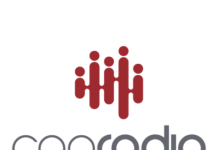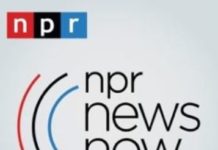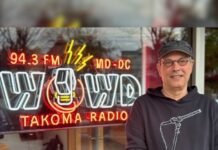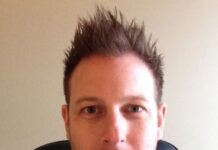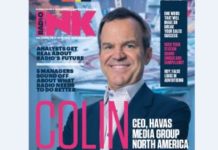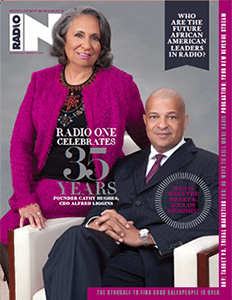
3-7-2016
BY EDITOR-IN-CHIEF ED RYAN
I wish people understood the significance, in 1977, of looking down the dais at a hearing on black media ownership held by FCC Chairman Dick Wiley — in a roomful of men — to see Cathy Hughes, the general manager of WHUR. That’s when I met her, bright and articulate as she shared her experience. I believe she and Dorothy Brunson were the only black women, and perhaps two of fewer than five women GMs in the country. I understood immediately how unlikely, how difficult, that was. Being good or capable wasn’t nearly enough, she had to be better than the best — and she was.
This was the person who invented The Quiet Storm, one of the most-copied radio products, which morphed into a format we can loosely define as Black AC today. I’ve loved and respected her ever since. She grew from that to station ownership. She became an important voice in Washington, DC, making information power when, instead of paying another announcer, she performed her own radio show on WOL.
Washington, and the industry, owed her much. So, given the chance, I was delighted she could acquire a major DC FM from us. All I did was ask if she could meet — not beat — the best offer we had for WKYS, which was from Scott Ginsberg. She could and did. I called Scott and told him I was accepting another offer. Yes, I told him the circumstance — that it wasn’t a counter for more money. His response (not word-for-word, it’s been a long time) was one of a gentleman; he paused and laughed, saying he would have paid more but understood, and he congratulated me.
Cathy Hughes also singlehandedly raised one of the brightest of our broadcast executives, Alfred Liggins, whose skills and dedication had built WMMJ and provided the resources for the acquisition. I’m extremely proud of both of their accomplishments — and today even more so in bringing Donnie Simpson back into the tribe. There are a lot of folks who owe Cathy Hughes. Count me among them.
Congratulations to Cathy Hughes and Alfred Liggins on 35 years of successful — and meaningful — broadcasting. — Skip Finley
RI: How does it feel to own a company that’s 35 years old now?
Hughes: I was 33 years old when we opened the doors of the company, with just the one station, WOL. It dawned upon me that I have been in business now half my life. I was like, “Wow!” The interesting thing is, it doesn’t seem like it. It’s as if it was yesterday that we started out. It went so fast. So quickly. So many memories.
Liggins: Yes, it really has. The company was founded in 1980 and I actually joined full-time in 1985, so I have been around for a good chunk of that 35 years, and it really is hard to believe that it’s been that long.
Hughes: It’s been over half your life.
Liggins: I feel fortunate and blessed. They have a statistic that 95 percent of new businesses that get started, fail. The idea that we’ve been in business this long and have continued to be able to prosper, expand, and fulfill a mission is a blessing. It’s really the fulfillment of a dream that we’ve had and that many Americans have, and that very few actually get to see come true.
RI: When you started, did you have a vision of the company becoming anything like it is right now?
Liggins: The answer is no, in terms of thinking that it would be this large. I remember, when I was in my 20s, writing down on a yellow legal pad the things I wanted to accomplish in life and in business. I still have the piece of paper. At that time, the ambition was to have four or five radio stations in Washington, Dallas, Los Angeles, and Chicago — this was actually before duopoly.
At that time, I also had an ambition to be in the record business. I wanted to have a record label that had a major distribution deal, and that was the extent of the ambition at that time. Then, to look at where we are now, we have certainly gone well beyond that, because life happens to you, right?
It was four radio stations because you couldn’t really own very many, and that was all that, at least, I could see, down the horizon. Although I can tell you that when I was about 18 or 19, I’d always had a dream that one day I’d be involved in a company that was a multimedia company, along the lines of what Universal and MCA were at that time. They had film, they had a television division, they had a music division. It was just a dream. My path had crossed a number of people that worked for Universal when I was living in Los Angeles. I said, “Wow, what a great opportunity something like this would be.” And then you go to work.
Somewhere along the way, things happen, and you end up building this company that somehow was stuck in the far reaches of your brain that you’d thought about in earlier years. That’s kind of how it unfolded for me. Mom obviously has her own thoughts about when she went into business and where she thought she would be.
Hughes: I always thought I would be in charge. I was 18 years old and had come from a long line of entrepreneurs. My grandfather was an entrepreneur. My father was an entrepreneur. Being in business was not exactly a goal, it was something I just took for granted. I used to have this goal before I reached my teen years of being the first African American woman with a nationally syndicated radio show, and I used to practice in the bathroom, with my toothbrush being my microphone.
I was probably well into my 30s when I realized Hattie McDaniel had not only been the first African American woman to win an Academy Award, she had also been the first black woman to have a nationally syndicated radio show. But I always saw myself in charge. I had never been in a radio station, but I used to have dreams about walking down the hallway, and it was interesting because I would be carrying my microphone, not realizing that you didn’t carry your microphone with you.
But I always had this vision of me walking down the hallway and people coming out of these offices to ask me things. I always saw myself being in charge of this microphone and having this megavoice that would reach everybody in the United States. It’s interesting because as you grow and you mature, you realize that your dreams take on different forms and different meanings. I realize now that this syndication dream of mine as a child actually dealt with being able to reach the entire African American public.
RI: Talk about the challenge you had trying to raise money.
Hughes: Everybody trying to get into broadcasting was having problems raising money, but particularly people of color and particularly women because at that time, banks did not have broadcasting divisions. This whole notion of goodwill being an asset was very foreign and very difficult for bankers to understand. They were like, “You’re putting a $30 million value on goodwill? That’s crazy.”
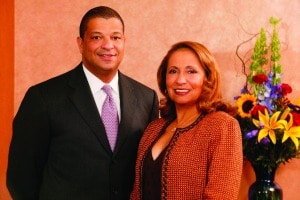 Part of my difficulty was the time it was occurring, in the history of lending practices. Shortly after I went into business, just about every bank in the world opened up a telecommunications division and started realizing that goodwill could, in fact, be interpreted as a hard asset. But here I was, a black woman, trying to convince people that I had this dream.
Part of my difficulty was the time it was occurring, in the history of lending practices. Shortly after I went into business, just about every bank in the world opened up a telecommunications division and started realizing that goodwill could, in fact, be interpreted as a hard asset. But here I was, a black woman, trying to convince people that I had this dream.
I had a track record, thank God, because I had created this format called “The Quiet Storm,” which became the most popular and most-used format in the history of Urban radio. I also had an incredible reference, with Kay Graham [then-chair and CEO] of the Washington Post. I never will forget when she spoke to the loan officer at Chemical Bank, and they called me and thanked me for the opportunity to have a conversation with Mrs. Graham. That was of great assistance to me.
And we had an incredible partnership that still exists today with a gentleman by the name of Terry Jones. His partner, Herb Wilkins, has since died. But Syndicated Communications Venture Partners during those days was the gateway to people of color getting into the telecommunications business. Those who did not receive loans or assistance directly from Syndicated Communications still sought their blessings and their influence and a good word from them for other people to loan them money.
Liggins: I was a teenager when my mom started the company, so the trials and tribulations she went through, I certainly wasn’t privy to. In fact, my consciousness of how important it was to be in business and what an opportunity it was actually came late. I remember when Mom first got the radio station and was going to take over, and was all excited to go to the station at midnight. I, of course, was asleep in bed and didn’t want to get up and go to the radio station. But I soon realized that there wasn’t really a choice.
Hughes: He says, “I’m asleep!” We’re getting ready to go for the biggest opportunity of our life and he was like, “Mom. I’m asleep!”
Liggins: When I did join the company, I certainly dove in, and my mother allowed me to be part of the decisionmaking process and really took me on as a partner. The partnership with Syndicated Communications was critical and really nurturing. It’s funny, I am at an investment banking conference now and last night I was actually telling a story of some advice that I had gotten from Herb Wilkins, many years ago, when I was in my 20s.
One of the pieces of advice was that no one in life can be successful in business and financially successful if other people around them don’t also want them to be successful. Otherwise the people around them will try to engineer their failure and their demise. That advice stuck with me.
I think it was a time when the government was set up to try to give minorities access to media, and there were several little “cottage industries” set up, if you will, to try to finance us — even those financing industries didn’t have much capital, but they were committed to the goal of putting black people, Hispanics, and women in business. My mother was visionary enough to see that there was an opportunity to do that and also fortunate enough to hook up with some folks that were committed to that goal. I’ve got to tell you, it was a long road.
The company was founded in 1980, and really founded in a tough time. This was during the oil crisis, where they had gas lines and prime interest rates were in the mid-20s.
Hughes: It was 1978, actually, when we started seeking funding. We opened our doors on October 3, 1980. The two years leading up to that were the difficult times of trying to secure funding. As soon as we went into business, prime went into the mid-20s, and there were some quarters where I was paying just shy of 30 percent interest.
Liggins: It took seven or eight years for the AM radio station to actually dig out from under the debt and the capital structure to where it was paying its debt and creating some significant cash flow.
Hughes: Yes, because my loan was 2.5 points over prime. So when prime went to 26-27, I was like at 29.5.
Liggins: Those people stuck with her, and consequently me and her.
Hughes: And they’re still with us today.
Liggins: Absolutely. Then we kind of made a beeline for the FM market because we saw that AM radio was heading in the wrong direction. And these folks then figured out a way to finance our purchase of our first FM radio station, WMMJ, a Class A radio station licensed to Bethesda, for $7.5 million. I think it took like 10 of these little venture capital funds to put up money to finance this one acquisition. That was really the launching pad for significant financial success.
RI: At what point along the way did you really know that this is going to work, that this is starting to kick in, and you’re going to make this thing big?Hughes: I’m still waiting on that, Ed. I have that same question.
Liggins: The company has actually been built brick by brick. When we first bought the FM and we got the financing done, I didn’t put the financial plan together; I was the sales manager at the time. I remember when the financial plan hit my desk and I looked at the revenue numbers that we were supposed to hit, I freaked out. I was like “Holy cow! How am I going to do this?” I was terrified.
We ultimately changed the format to Urban AC, and the ratings went up. But 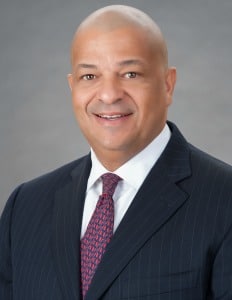 even with the ratings going up, it was still hard to sell advertising. There was a five-year period between 1987 and 1992, when we bought our next radio station. I remember somewhere during that period, I would start to see the monthly revenue numbers go up, and they were getting to really significant numbers. I remember the first time we’d done a million dollars in a month, and I remember talking to Herb Wilkins and Terry Jones and reporting those numbers.
even with the ratings going up, it was still hard to sell advertising. There was a five-year period between 1987 and 1992, when we bought our next radio station. I remember somewhere during that period, I would start to see the monthly revenue numbers go up, and they were getting to really significant numbers. I remember the first time we’d done a million dollars in a month, and I remember talking to Herb Wilkins and Terry Jones and reporting those numbers.
Somewhere around the 3 1/2-year mark, I started to feel like, “This is going to work. We are going to make a lot of money on this radio station.” I still wasn’t thinking about the company being bigger. Going from being terrified from seeing projections to seeing the revenue number get to what I thought at the time was a really astronomical level, I started to really breathe a sigh of relief, which then emboldened us to figure out the next expansion opportunity. We looked right down the road to Baltimore, and in 1992, we ended up buying WWIN-AM & FM from Ragan Henry.
Hughes: Ragan Henry was an African American broadcast entrepreneur who not only sold us those Baltimore properties, but really served as one of those individuals that, whenever he could, looked out for us. He let us know if a buy was coming down. We weren’t able to close on a property we were buying from him, and down payments are non-refundable. When we went back a second time with him, he gave us credit for that down payment, something that he did not have to do.
Everybody considered Ragan Henry to be a hard-nosed, hard-core businessperson, everything was business with him. Yet with us, he had this compassion, this empathy of, “Hey, I was there at one time, trying to get started,” and would look out for us.
RI: After Baltimore, when you were adding these other markets, did you ever think, “Wow, this is risky. Are we sure we want to do this?”
Liggins: After Baltimore, after we bought WWIN in 1992 — we tried to buy it once before and I think a recession hit, or something hit, and we didn’t actually move forward.
Hughes: We didn’t move forward because the lending institution had changed its terms.
Hughes: We doubled back a year later and ended up doing that deal. Then, within the next 12 months after that, the duopoly rules came into effect. We are in head-to-head combat in these markets. We’re not the only Urban radio station. Washington was very competitive, and in Baltimore, there was V103, owned by Summit, and we owned WWIN-FM. And there was United Broadcasting, which owned 92Q. We focused on buying the competitor.
So, no, I didn’t feel at that point in time, when we started to expand there, I didn’t feel that it was risky because we were buying a competitor — it’s in your market, something that you know, and we kind of looked at it as eliminating competition. So we really focused on trying to build our position in Baltimore. We bought 92Q in 1993 from United Broadcasting.
I think the biggest acquisition opportunity probably in the company’s history was to buy WKYS in Washington, which was also a competitor at that time — when we still had the one AM and we were trying to figure out how to buy an FM. GE bought NBC and then had the spinoff of their radio group, and they decided they were going to sell WKYS to a minority. My mom put together a valiant effort to try to raise the money to buy that radio station. It was going to go for $40 million-plus. We didn’t really understand the financial market, the capital markets. And she was doing her morning talk show, so she did what she knew how to do and she turned to the community and she wanted to raise the money out of the community. She started the Community Committee Corporation, and she raised like $500,000.
Hughes: I raised the down payment at $100 per investment.
Liggins: She would do weekly meetings in churches all around Washington, and a couple of hundred people would show up at a time and hear the pitch, and they would write checks. I remember when they were up to a half a million dollars and Mom came into the office and said, “I got a call from this woman who listens to the morning show who works for the SEC who said, ‘I listen to your show every day and I don’t know if you know this, and I really applaud what you’re doing, but what you’re doing is illegal.’”
Hughes: She said, “I’ve been working at the Securities and Exchange Commission for many years, and we’ve never seen anyone attempt to do this because this is illegal. You cannot do what you’re doing.” She said, “How much money do you have in the bank account?” I said, “Just under $500,000. I’m getting ready to make a down payment.” She said, “Whoa.” Someone we did not know personally came to my rescue.
Liggins: So we didn’t get WKYS, but a group led by Skip Finley, Ron Brown, and Burt Lee ended up buying it for about $45 million. We competed against them, but in 1993, we ended up buying 92Q, which was a competitor in Baltimore. Then in 1995, we figured out how to finance stuff and we got the opportunity to buy WKYS from that group. They went out of their way to sell it to us. The M&A market was raging at the time, and they could’ve sold it to Scott Ginsburg at Evergreen Media, but they were also socially conscious and wanted it to be in African American hands. Skip Finley was close to my mother.
Hughes: When I went to Syndicated Communications and made a presentation to Herb Wilkins and Terry Jones, they asked, “What’s your business plan look like?” I didn’t know. I knew how to run a radio station. I did not know anything, at that time, about being in the business of radio. I said, “My plan is to succeed in business.”
And they started laughing. I could not understand what was so funny about me planning to succeed in business. They said, “No, you have to have a business plan.” Skip Finley, who was a close personal friend, showed me how and assisted in writing my very first business plan.
RI: How much did you pay for WKYS?
Liggins: We ended up buying it for $34 million. I remember, because I think Skip had originally reached out to Syncom, and then Syncom called us. We were negotiating on price, and we were nervous at the time, because it was a lot of money. Back then, you had to put up an escrow deposit not really knowing where you were getting your financing. You get the deal, and then you go out and raise the financing.
We weren’t sophisticated enough to have lines of credit set up. So I remember, as we were negotiating, Skip called me up and came over to my house, sat in my dining room and said, “You’ve got to do this, and you’ve got to pay this price, because Scott Ginsberg wants to buy this radio station, and I’m going to sell it to him if you don’t get focused and commit….”
Hughes: “And either you can do the deal or you can’t.”
Liggins: So I stopped. But he didn’t have to do that.
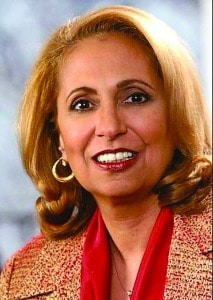 Hughes: Just like Ragan Henry didn’t have to give us our money back. He did not have to credit our down payment that we had lost. Like Tony Jones and Herb Wilkins did not have to go to a countless number of sources to put together a syndicate of funding sources for us to be in business. Again, individuals who, had it not been for them, our story would be considerably different as we talk to you today.
Hughes: Just like Ragan Henry didn’t have to give us our money back. He did not have to credit our down payment that we had lost. Like Tony Jones and Herb Wilkins did not have to go to a countless number of sources to put together a syndicate of funding sources for us to be in business. Again, individuals who, had it not been for them, our story would be considerably different as we talk to you today.
Liggins: Absolutely. So we ended up doing it, and we found the money. But it was a really scary point. WKYS was a big turning point, because it was our first full-market FM. We actually ended up turning the station around; it had fallen on hard times. It lost its morning host, Donnie Simpson, who went to WPTC. It was scary trying to get that financing done.
Then the next acquisition we focused on — that we didn’t do — was at about the same time, WDAS in Philadelphia, which I had under letter of intent. We offered $23.5 million, but I knew the WKYS deal was potentially going to come up and didn’t feel like we could do both. I remember going to Syncom and saying, “We could buy this, it would be a good deal.” And then Herb Wilkins said, “You should buy it.” I was like, “Where are we going to get the money?” They were the venture capital firm, right? He looked at me and said, “I don’t know.” That “I don’t know” led me to pass on the deal, which was something — I don’t know — how many years did I lament over that one, Mom? Like 20?
Hughes: But also, at the same time, Alfred was at Wharton getting his MBA. He didn’t have time to go find the money and complete his degree.
RI: Were you in favor of the new deregulation rules that had been passed at the time?
Liggins: Actually, we have never been opposed to deregulation. Maybe for a short period of time, after the total de-reg, when the industry consolidated heavily and people were talking about further deregulation, but we always kind of figured the rules are going to change, and we are just going to play by the new rules. I don’t think standing still is really an option.
We didn’t spend a lot of time fighting deregulation. We just decided to participate. After everybody started going public and buying up everything, I did go through a period of time where I thought there would be no more assets left, the opportunity was gone forever, and it was kind of depressing. I certainly, at that point in time, wasn’t in favor of these already big companies getting even bigger.
But Clear Channel ended up buying AM/FM, and then there was an opportunity because they had to spin off a bunch of stations. That was an opportunity for us to actually pick up a bunch of assets that we didn’t think were going to end up coming to market. We had gone public by then. You never know what happens. Deals come and go, and there’s a cycle. What’s up ends up down, and what’s down oftentimes ends up up again.
Today, I would tell you that while maybe the National Association of Black Owned Broadcasters might be against further de-reg, I would say, as a CEO in the radio industry, that I would welcome some more deregulation because the industry could use another round of consolidation, given all the competition in media, to get some economies of scale. I think throughout my career, I’ve probably been pro-de-reg most of the time. Which is odd for a minority broadcaster.
RI: Looking back on 35 years, can you pick out things from those years that you are most proud of?
Hughes: I’m most proud of the day we reached 1,000 employees who were either women or people of color. That was very, very important to me. My first goal was 300, then it grew to 500, and from 500, I said when I’m able to be responsible for 1,000 minority broadcasters, I will feel that is a defining moment in my career and the history of my company. That was very, very important to me.
It wasn’t just about building a family business. I viewed my staff as my extended family. At one time, and it is probably even true today, our company employed more people of color than all of our competitors combined. When people ask me what’s been my driving force, it has been that. Here I was given this great opportunity, had individuals like Herb Wilkins, Terry Jones, Ragan Henry, Skip Finley, and others who came forth and were of assistance to me, I felt I had to pay it forward, that I had an obligation to do that for others.
Over the years there have been so many situations and events where my stations have made a difference. A water main broke in Baltimore, in the heart of one of the most impoverished areas. There was a cemetery, and coffins were actually floating down the streets of Baltimore. The city disavowed any responsibility. And here were all of these impoverished people running around in canoes to get up out of their neighborhoods, navigating coffins. They had no place to go. We were like, “No, no, no. This could not happen.”
So I called the Red Cross and told them that I wanted to do a major fundraiser and put these people in hotels. They said, “Do you know how much money that would cost?” I said yes. They said, “We could put some people up, but you’ll have to bear the responsibility for the majority.” By the end of the year, we got an award from the American Red Cross, because we put every one of those people in hotels. So many instances like that throughout the years, where the immediacy of radio empowered us to directly assist our community.
Liggins: I’m proud of our ability to morph into a multimedia company. Radio One was founded in 1980, and that’s the same year that Black Entertainment Television was founded. Herb Wilkins and Terry Jones and Syncom were involved in that as well, so I got a bird’s-eye view of the medium of television when there was only one channel targeting African Americans that really impacted our community.
And I sell advertising, so I know that radio is a powerful medium and it has lots of virtues, but one of the things it didn’t have was a picture. Some advertisers just need that. I always felt that we were in the black people business and not just the radio business. I felt like we needed to figure out a way to get that capability in our arsenal.
So, as the radio business started to flatten out, we saw an opportunity to expand into TV, and in 2004, we were able to strike a partnership deal with Comcast and launch TV One — which is an extraordinarily difficult feat as an independent, particularly a minority-owned independent, to create a standalone cable network from the ground up that today is wildly successful.
By the way, I think having that broad reach makes us more attractive as a radio company for talent who want to be involved with us. We partnered with Tom Joyner and David Kantor and bought a controlling interest in Reach Media, so we now have eight syndicated shows and the top syndicated radio talent, with 225 affiliates that we don’t own. A lot of this talent is cross-pollenated across our different entities. It makes us a broader black-targeted media company able to give opportunities to folks in our radio division as well. I think, for me, making that transition has been my proudest moment.
RI: You’ve both created a big, successful company, but you’ve also created a company that is the voice for the African American community.
Liggins: I tell people all the time that I sell advertising. That’s probably what’s going to be on my epitaph. But when I sell advertising, when I talk to clients, I tell them that the difference between doing business with us and doing business with somebody else is that we take our role as a voice of the black community very seriously. This is not just an entertainment platform for us. This is a platform to inform, educate, entertain, and advocate for the African American community. And we do that.
This was started by my mother and her vision. We take positions in support of the black community and use our assets to move issues forward and make things happen. We are not passive stewards of this audience and these assets. We are heavily linked to all the civil rights organizations, local community organizations, business communities — that’s how we view ourselves. We don’t just play records. In fact, the records are actually a means to gather the audience in order to actually empower them and move them forward.
Hughes: And to inspire them and to tell their stories from their perspectives. That’s what’s always been missing. Many years ago I recognized that it’s not someone else’s community and culture that has the responsibility to get your story correct. It’s your responsibility to tell your story from your perspective and have it correct.
Oftentimes things that are considered “racism” just are really not understanding the nuances and the idiosyncrasies of a different culture. It doesn’t have anything to do with anyone getting up one morning and saying, “Oh, we’re not going to mention this.” Well, they didn’t know how important that was to your people, to your community. It’s very important, we think, to allow our community to have its story told from its own perspective and for us to get it right.
Liggins: Radio is a legacy, traditional media business. There’s no secret that all of these businesses, whether it’s newspaper or magazines or radio, have been challenged. Broadcast television was challenged before they got re-trans. I think those of us in the radio business need to look at ourselves as being in the audience business. The Internet has provided us an opportunity to be on a level playing field with other media outlets because we can send our audience to our websites, where they can interact with video we create, they can interact with stories we write or pictures that we take and communicate back and forth with the station entity.
To the extent that we look at ourselves representing audiences, and not just an audio entertainment vehicle, then I think that’s the way forward and the future of the medium surviving. Everything is converging. We have a massive audience. Radio is ubiquitous. It’s everywhere. It’s free. Today, the radio industry still has the lion’s share of the audio revenue. They’ve still got the biggest personalities. They’ve got the most reach. We cannot squander that opportunity as an industry. We’ve got to use that to get to the next level. Just like we didn’t hide from deregulation, the radio industry can’t hide from the convergence of media. We have to embrace it.
RI: Ms. Hughes, today, when you see that with Alfred leading the charge and the company as big as it is, it is now basically the voice of the African American community across the country, how does that make you feel when put your head on the pillow at night?
Hughes: It makes me feel like I’ve got to wake up early and get to that business again the next day. Because the other thing about radio is, you can’t rest on your laurels. It is such an ever-changing and quickly changing industry that just because you were doing good last year does not assure your success for the upcoming year. It makes me proud. But it also stimulates me and encourages me. I get exhilarated over the opportunity that it presents for me to take it forward.
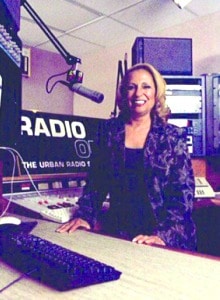 But I would really, really be heartbroken if I didn’t share with you the name and history of one other individual who has been instrumental in our company’s growth for many years. He was my sales manager when I was at WHUR. In November, Tony Washington died within a five-week span of learning that he had stage 4 pancreatic cancer. Tony taught me and Alfred so much about salesmanship over the years and was one of those individuals that would do whatever is necessary to see to it that our company was successful, but more importantly, he was like the godfather of everybody on the staff. He was the go-to person. We lost him in November, and I can’t tell you how devastating that still is for all of us because Tony literally lived up to the reputation of being able to sell ice to eskimos. There was absolutely nothing that Tony could not get accomplished in the sales arena.
But I would really, really be heartbroken if I didn’t share with you the name and history of one other individual who has been instrumental in our company’s growth for many years. He was my sales manager when I was at WHUR. In November, Tony Washington died within a five-week span of learning that he had stage 4 pancreatic cancer. Tony taught me and Alfred so much about salesmanship over the years and was one of those individuals that would do whatever is necessary to see to it that our company was successful, but more importantly, he was like the godfather of everybody on the staff. He was the go-to person. We lost him in November, and I can’t tell you how devastating that still is for all of us because Tony literally lived up to the reputation of being able to sell ice to eskimos. There was absolutely nothing that Tony could not get accomplished in the sales arena.
Liggins: We always used to have a joke about Tony — we all called him T-Wash. If you came into the office in the morning and asked Tony for an airplane, he’d have it in the parking lot by lunchtime.
RI: Where is Radio One going? What is your vision for the future?
Liggins: The mantra is that we are in the black people business. We serve the African American community, whether they’re listening to a radio station we own, radio stations that other people own, whether they’re watching television or whether they are online, or whether they’re gathering for some large-scale event like Tom Joyner’s Family Reunion or the Fantastic Voyage. We’re going to continue on that path.
I see us getting larger in radio. We expanded with two stations in Columbus, OH. There will be continued opportunities for us to expand in radio. We’re going to continue to expand our television business. I was hoping the Internet was going to go away, but it didn’t. I was praying — when the first Internet bubble burst, I was really, really happy. But we have to build a significant digital presence. There will be a large-scale company serving African Americans in the digital space, and we want that to be our Interactive One unit. We’re continuing to double down on our strategy.
We are also diversifying into some other businesses, like the gaming business. We’re partnering with the MGM Casino that they’ve building in Prince George County in Maryland. Prince George County is 70 percent African American. We looked at that as an extension of what we do. I think you will see us continue to nurture the platform and expand within our borders.
Hughes: I agree 100 percent. I want to continue to grow, I want to continue to provide opportunity to people of color and for women. I want to continue to be committed to the inspiration and uplifting and improvement of the lifestyle of our viewer, our listeners, our ’Net users.
